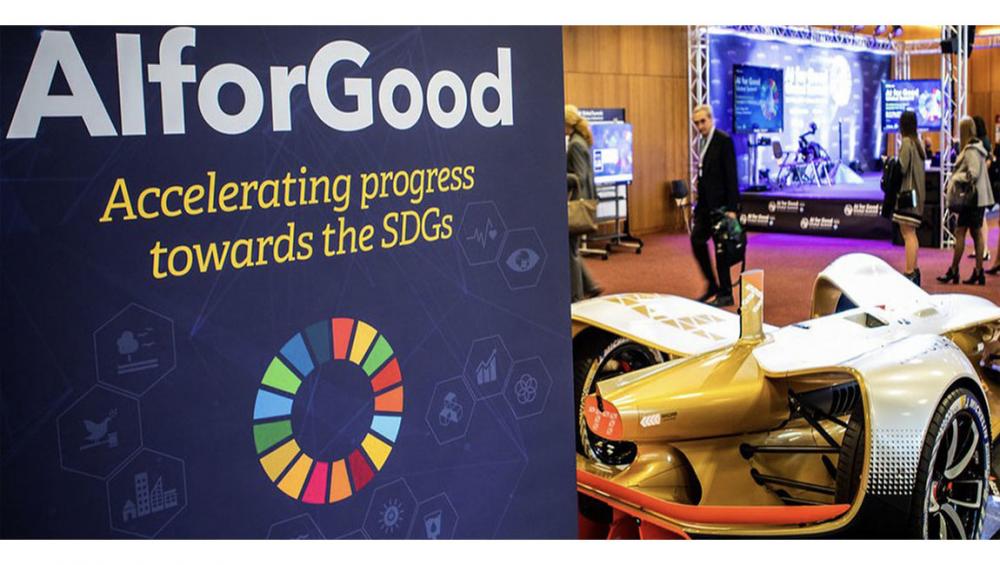Just Earth News | @justearthnews | 29 May 2019
#Artificialintelligence #hunger #climatecrisis #smartsustainablecities #UN #HoulinZhao #GoodGlobalSummit #Geneva

ITU Twitter
New York, May 29 (JEN): Artificial intelligence, or AI, is at the forefront of fighting hunger, mitigating the climate crisis and facilitating “the transition to smart sustainable cities", said the chief of the UN agency which specializes in information and communication technologies, Houlin Zhao, kicking off the third AI for Good Global Summit in Geneva.
“This summit is the leading United Nations platform for dialogue on artificial intelligence”, explained the Secretary-General of the International Telecommunication Union (ITU) on Tuesday, adding that it “also raises complex questions about privacy and trust and poses other challenges, from job displacement and potential bias in algorithms, to autonomous weapons and social manipulation”.
More than 2,000 participants from over 120 countries joined AI leaders and humanitarian actors to highlight its potential for advancing education, healthcare and wellbeing, social and economic equality and space research.
Unable to attend in person, Secretary-General António Guterres sent a message lauding "the promise" of AI while also warning against its potential dangers.
"If we are to harness the benefits of artificial intelligence and address the risks, we must all work together – Governments, industry, academia and civil society – to develop the frameworks and systems that enable responsible innovation", he said. "These systems must be nimble and adaptable, capable of developing norms and self-regulation standards alongside legally binding laws and instruments when needed, as in the case of lethal autonomous weapons".
Noting that the UN is "well placed" as a forum on "how best to guide progress to better serve humanity," Guterres underscored that "we must seize the moment, in partnership, to deliver on the promise of technological advances and harness them for the common good".
In his opening address, Petteri Taalas, Secretary-General of the World Meteorological Organization (WMO) spelled out that climate change is accentuating the need for tailored information to improve resilience to extreme weather events.
“WMO deals with big data every day, running a 24/7 operational prediction system based on a huge amount of data gathered around the world,” he said, identifying AI as a potentially valuable tool to help meet this challenge.
Francis Gurry, Director General of the World Intellectual Property Organization (WIPO) said that 340,000 AI patent applications have been filed since the 1950s: “Artificial intelligence is one of the most important of the technologies that are currently transforming our economy and society.”Guided by its inter-disciplinary audience, this year’s summit aims to generate 'AI for Good' projects and ensure that associated technologies will be developed safely, allowing equal access for all.
He acknowledged there were pressing economic, social and ethical questions surrounding AI, saying that “we are at an extremely early stage, but the common characteristic is that the underlying technological activity…is occurring at a much more rapid speed than our capacity to formulate” responses.
Organized by the International Telecommunication Union (ITU) - in partnership with the XPRIZE Foundation, the Association for Computing Machinery (ACM) and 37 UN entities - the summit, which will run from 28-31 May, aims to identify practical applications of AI to accelerate the UN Sustainable Development Goals.
“We need to ignite a bigger conversation centered around how to use AI and data to help find scalable solutions to the biggest challenges facing humanity," XPRIZE CEO Anousheh Ansari said.
It will also debate unintended consequences of the AI revolution, and propose actions for high-potential solutions in achieving global scale, along with a so-called “learning day” to offer an audience with leading AI experts and educators.
“By bringing together AI technologists with leaders in government, industry, and humanitarian initiatives, new ways to apply AI to pressing world challenges are imagined and realized,” stressed Vicki L. Hanson, ACM CEO.
What is clear to ITU chief Zhao is that “no one nation, no one organization, no one company and no one community can meet these challenges alone”.
“The path to a transformative but also a safe, trusted and inclusive AI will require unprecedented collaboration between government, industry, academia and civil society", he concluded.